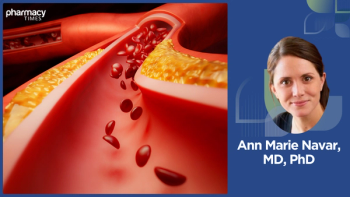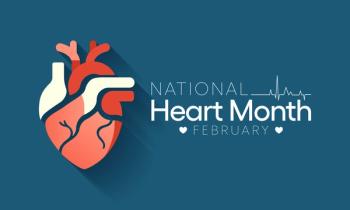
Benralizumab May Be Significant in Helping Patients With Severe Asthma Reduce Regular, Inhaled Steroids
The study results demonstrated that 92% of patients treated with benralizumab were able to safely reduce inhaled steroid dose, and more than 60% could stop use entirely.
Severe asthma can be managed using the biologic therapy benralizumab without the addition of regular, high-dose inhaled steroids, which can have significant adverse effects (AEs), according to new research published in The Lancet.1 The results of the multinational SHAMAL study can be significant for patients with severe asthma because they have the potential to both minimize and eliminate AEs from inhaled steroids, including osteoporosis which can lead to an increased risk of fractures, diabetes, and cataracts.2
Asthma, which is one of the most common respiratory diseases worldwide, affects approximately 300 million people, of which 3% to 5% have severe asthma. Patients often experience daily AEs such as breathlessness, chest tightness, and cough, as well as repeated asthma attacks that may require hospitalization.2
The SHAMAL study evaluated the efficacy and safety of benralizumab, a biologic therapy that reduces the number of inflammatory cells called eosinophil. Eosinophils are produced in abnormal numbers in the airway of patients with severe asthma and are highly active during the development of asthma attacks. Benralizumab is an injectable treatment that is administered every 4 to 8 weeks and is available at specialist asthma centers.2
A total of 208 patients with severe asthma were enrolled in the SHAMAL study. Patients were randomly assigned in a 3:1 fashion to the treatment-reduction group—patients received 30 mg of benralizumab once every 8 weeks plus an inhaled corticosteroid and gradually tapered off—or the reference group—patients receive 30 mg of benralizumab once every 8 weeks. The patients in the treatment-reduction group who tapered their dose over 32 weeks also participated in a 16-week maintenance period.1,2
The results indicated that approximately 92% of patients who received benralizumab could safely reduce the inhaled steroid dose, and more than 60% could stop the use of benralizumab entirely. The annualized asthma exacerbation rate (AER) was 0.14 for both groups at the end of the entire study period.1 During the reduction period, the rates were 0.15 in the reduction group and 0.04 in the reference group. During the maintenance period the AERs were 0.14 for the reduction group and 0.35 for the reference group. In addition, 87% in the reduction group and 88% in the reference group had no exacerbations throughout the study period.
Additionally, the researchers noted that prior research demonstrated that benralizumab can reduce systemic steroid exposure in severe asthma. Although the data further solidifies the role of eosinophils in exacerbation pathogenesis and symptom control, the relationship between the lung function’s decline may suggest this may be an eosinophil-independent process, according to the study authors. Further, the authors note that additional research similar to the SHAMAL study will be necessary before any recommendations can be made regarding the safety and efficacy of reducing and elimination high dose steroid use with biologic therapies.1,2
“Biological therapies such as benralizumab have revolutionized severe asthma care in many ways, and the results of this study show for the first time that steroid-related harm can be avoided for the majority of patients using this therapy," David Jackson, PhD, professor of respiratory medicine at King’s College, London, and head of the Severe Asthma Centre at Guy’s and St. Thomas’s, said in a press release.2
References
1. Jackson, DJ, Heaney, LG, Humbert, M, et al. Reduction of daily maintenance inhaled corticosteroids in patients with severe eosinophilic asthma treated with benralizumab (SHAMAL): a randomised, multicentre, open-label, phase 4 study. The Lancet. doi:10.1016/S0140-6736(23)02284-5
2. King’s College London. Major breakthrough for severe asthma treatment. News release. December 2023, Accessed December 11, 2023.
Newsletter
Stay informed on drug updates, treatment guidelines, and pharmacy practice trends—subscribe to Pharmacy Times for weekly clinical insights.

































